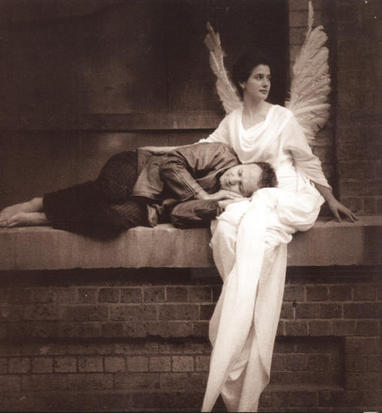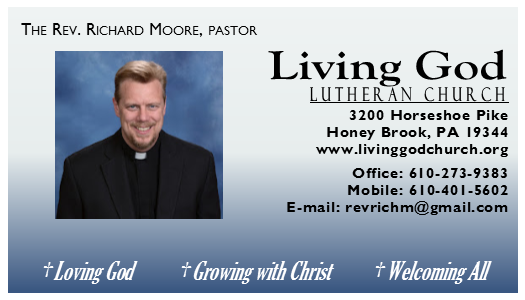A shoot shall come out from the stock of Jesse, and a branch shall grow out of his roots. The spirit of the Lord shall rest on him, the spirit of wisdom and understanding, the spirit of counsel and might, the spirit of knowledge and the fear of the Lord. His delight shall be in the fear of the Lord. He shall not judge by what his eyes see, or decide by what his ears hear; but with righteousness he shall judge the poor, and decide with equity for the meek of the earth; he shall strike the earth with the rod of his mouth, and with the breath of his lips he shall kill the wicked. Righteousness shall be the belt around his waist, and faithfulness the belt around his loins. The wolf shall live with the lamb, the leopard shall lie down with the kid, the calf and the lion and the fatling together, and a little child shall lead them. The cow and the bear shall graze, their young shall lie down together; and the lion shall eat straw like the ox. The nursing child shall play over the hole of the asp, and the weaned child shall put its hand on the adder’s den. They will not hurt or destroy on all my holy mountain; for the earth will be full of the knowledge of the Lord as the waters cover the sea. On that day the root of Jesse shall stand as a signal to the peoples; the nations shall inquire of him, and his dwelling shall be glorious.
Some would say the great mysteries of our faith are things such as the virgin Mary's conception, and the resurrection of Jesus. But, Isaiah describes, what I think, is an even greater mystery--the paradox of Christ's everyday advent.
Isaiah describes the coming of the Messiah as an event which results in peace between opposites; the powerful and the vulnerable. Isaiah's descriptions are poetic and his message poignant: The Messiah will come in the mystery of a paradox of faith.
 Take a look at the sculpture to the right. The artist's name is Timothy Schmalz. The first thing you see is a figure of a homeless person under a blanket on a park bench. Your first reaction is, possibly, to be moved with pity or sadness. But then you notice the feet sticking out from under the blanket--there are holes in his feet! Immediately, your mind shifts "this is a strange homeless man" to "Hey, it's Jesus" This shift of paradigms moves us from feelings of pity to compassion. Pity may have dropped a dollar into a Salvation Army bucket, but compassion makes us want to go to the man and personally help. The holes in the feet show us something we didn't know when all we saw was a stranger. The holes show us someone we know, someone we love.
Take a look at the sculpture to the right. The artist's name is Timothy Schmalz. The first thing you see is a figure of a homeless person under a blanket on a park bench. Your first reaction is, possibly, to be moved with pity or sadness. But then you notice the feet sticking out from under the blanket--there are holes in his feet! Immediately, your mind shifts "this is a strange homeless man" to "Hey, it's Jesus" This shift of paradigms moves us from feelings of pity to compassion. Pity may have dropped a dollar into a Salvation Army bucket, but compassion makes us want to go to the man and personally help. The holes in the feet show us something we didn't know when all we saw was a stranger. The holes show us someone we know, someone we love.
The Canadian artist came up with the idea for his unusual sculpture after spotting a homeless person sleeping on the corner of one of Toronto’s busiest streets. It was Christmastime and while the rest of the city was bustling around with the holiday spirit, this person was wrapped up in a sleeping bag. Schmalz didn’t know if it was a man or a woman — all he could see was a mass of cloth lying still on the floor. “My initial reaction was, ‘That is Jesus,’” the 43-year-old told the New York Daily News. Read More
Timothy Schmalz's sculpture is titled "Homeless Jesus" and it helps us get inside the paradox of Isaiah's prophesy. Just as Isaiah described the coming of the Messiah as a kind of truth within opposites, so too is this sculpture where we see the Messiah, King of kings, Son of God is a lonely, vulnerable homeless man. In other words, the powerful wolfe (iconically portrayed as a lion) is lying down with the lamb, the vulnerable.
The gospels tell us that Jesus came and accomplished this prophecy.
During his life and ministry, he identified with the poor. He lived as a homeless man, among homeless people. "The Son of Man has no place to lay his head." He came for the homeless, sick, vulnerable, lonely, lost and sinful. He "laid down with them" when he ate with them, fed them, defended them from harm, forgave them, and healed them. In the end of his ministry he commanded his disciples, "What you do for the least of these, you do for me."
Mother Theresa of Calcutta was once asked, "What is your inspiration for caring so much for these homeless people?" Her reply, "I see Jesus in them."
When we see a homeless man, a lonely woman, a starving child, etc and instead of seeing only a stranger we begin to see Jesus in them--Then, in that moment, we have entered the paradox of Christ's coming and Isaiah's prophecy is true.
When we see that friend or family member that we can't get along with, that we can't bring ourselves to forgive, and instead of seeing only the hurt and the pain, we begin to see Jesus on the cross---then, in that moment, Isaiah's prophecy is true.
When we look ourselves in the mirror, and instead of seeing only the shame and the regret of our past, we begin to see Jesus--then, in that moment, the prophecy is true.
Prayer:
Come Lord Jesus, and open the eyes of heart to see you. Amen








